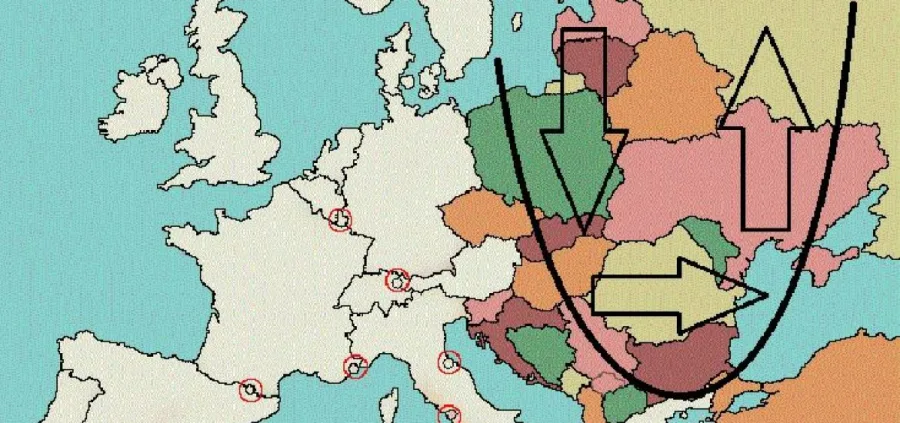
(*This opinion / analytical article was written by Ivan Dikov for The European Views website.)
Western failures in Eastern Europe and at home, coupled with Eastern Europeans’ impotence, have entrenched post-communism, the highest stage of communism.
“A specter is haunting Europe. The specter of post-communism…”
It has just been 30 years since “communism” ended.
And there isn’t a word in that above sentence that isn’t highly questionable. For a close scrutiny reveals that neither was it last weekend, nor was it 30 years ago, nor was it communism, nor did it end.
But the human mind easily gets lost in too many conditionalities so it’s best to do what economic science, political science, and social sciences in general do when erecting their entire edifices on the faulty foundations of the “rational choice theory”. They do that not because the rational choice theory is correct, for it isn’t, but because otherwise their scientific-ness would be non-existent.
So, of course, the event at hand here is the 30th anniversary since November 9 – 10, 1989, when the Berlin Wall “fell”, and so did the supposedly communist semi-totalitarian, semi-authoritarian Soviet satellite dictatorships in the countries of Eastern Europe, which had had the unfortunate fate of being occupied by Stalin’s Red Army at the end of World War II. The Soviet Union itself teetered on the brink of collapse for two more years until it got dissolved by the newly emerged leaders of Russia, Ukraine, and Belarus in December 1991.
Then the story is well-known – the former Soviet satellites then democratized, restored market economy and private property, and personal freedom, and sought to gain or regain their status as Western and European countries, a process that has been formalized even since 1999 through their gradual accession to NATO and the European Union – whose membership is precisely the formal recognition of those changes.
Meanwhile, the Soviet Union’s main successor state, Russia, grew relatively rich thanks to mostly growing and gas prices, kept getting “insulted” by the West, and became “resurgent”, shaping a new great power dynamic on the European continent.
But for more than the dozen of Eastern European countries, the continent’s middle tier, from Estonia in the north to Bulgaria in the south, and for their Western allies and partners, this “end of communism” thing has been a major success story, right? It has boosted freedom, democracy, the economy, peace, security, stability…
Then why has there been all that gloom when Germany, Eastern Europe, and supposedly all of Europe and the world celebrated, or at least acknowledged the 30th anniversary since the Fall of the Berlin Wall, the lifting of the Iron Curtain, the end of the Cold War (btw, that historical period had some swell vocabulary!), the end of communism, and the end of history?…
Read the rest of this article on The European Views website here
(439 words cited out of a total of 2,667 words)

